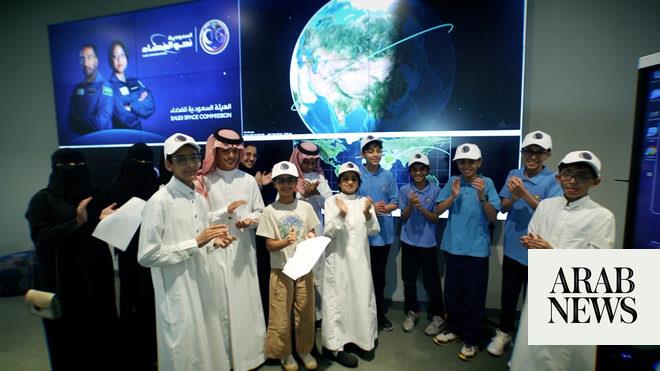
During an interactive session with the audience, Sophia addressed one of mankind’s greatest fears – will we be one day replaced by artificial intelligence (AI) and machines?
In 2017, the McKinsey Global Institute forecasted that nearly 800 million jobs could be lost to automation by 2030
JAKARTA: As the world’s first humanoid robot with a citizenship to flaunt, Sophia is no small wonder.
Developed by Hong Kong-based Hanson Robotics, Sophia made the headlines in October 2017 after Saudi Arabia became the first country in the world to grant her a citizenship.
On Monday, she shared the stage with other speakers at the 2019 CSIS Global — organized by the Center for Strategic and International Studies (CSIS) and the Pacific Economic Cooperation Council (PECC) — in the Indonesian capital Jakarta and pushed all the right buttons.
During an interactive session with the audience, Sophia addressed one of mankind’s greatest fears – will we be one day replaced by artificial intelligence (AI) and machines?
“Robot brains are modeled after human brains, but they are very different in many ways,” Sophia said, adding that there were more opportunities for a partnership rather than competing against one another.
According to Dr. Luke Hutchison, the founding member of Google’s AI Lab, it is not about the rise of superintelligence and doing something evil to humans that constitutes a danger.
Citing the recent cases of deadly Tesla crashes due to a faulty autopilot as an example, he argued that “the real dangers of the AI are not evil AI but bad AI” and a lack of human, corporate responsibility.
While Tesla blamed drivers for not taking action seconds prior to the crashes, Hutchison said it was AI technology creators who needed to be held accountable for what they built.
“This is a very common example of what we see in the corporate use of machine learning, where companies are not taking responsibility for the very technologies that they create. And it’s a very serious problem,” he said in a keynote session.
He added that the deliberate misuse of AI was also problematic. Machine learning-powered disinformation campaigns or AI-based techniques known as deepfakes, destroyed the human category of truth versus falsehood, which is among our mental means to deal with the real world.
Deepfakes – realistic video content showing people doing things they had never done or saying things they had never said – give room for making real claims about fake news or for denying real footage by claiming it is fake, which “messes with our concept of reality,” Hutchison said.
Another issue was brought to the fore by Sophia herself: the extension of human and civil rights to nonhumans.
When asked whether as a Saudi citizen she had to stand in an immigration line or entered Indonesia through customs, she said: “They haven’t sent me my passport yet ... I still have to go through customs.”
Her response was met with laughter, even as everyone present in the audience was aware of the fact that the issue itself could redefine the basic concept of human and civil rights. Universally denied to animals, which like us are sentient, they may soon be universally granted to insentient nonhumans. Sophia’s creator, David Hanson, said last year that this could happen by 2045.
While a discussion on human liberties for nonhumans has yet to start, much has been said about robots taking over our jobs, which appeared to be a major fear among audience members.
In 2017, the McKinsey Global Institute forecasted that nearly 800 million jobs could be lost to automation by 2030. However, most of them are the simplest, manual occupations that for ages have seen the use of bonded labor.
Asked about the jobs of tomorrow, Sophia herself listed those that will require governments to offer better education, which consequently will give people more opportunity to flourish. Engineering and programming will be high on the list, she said, but “we will also need people with creativity and the ability to dream. We will need artists, writers and visionaries.”









